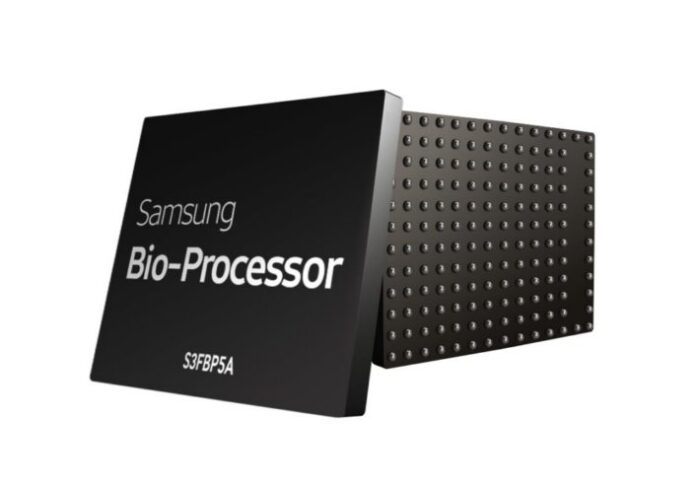Half of all smartphone owners believe internal sensors will update us on our well-being within 3 years, according to Ericsson’s Consumer Trends Report. But until now, those health sensors have not been able to process the information they collect from their human hosts. Sensors are typically paired with a processor in a form factor such as a wristband.
Now Samsung is launching a “bio-processor,” which it claims does not require external processing. One chip integrates measurement and processing by integrating analog front ends, a microcontroller unit, a power management integrated circuit, a digital signal processor and flash memory.
Samsung says the bio-processor will measure body fat, skeletal muscle mass, heart rate, heart rhythm, skin temperature and stress level. The company has helped create a wristband and a patch that serve as reference designs for device makers interested in using the new chip.
Of course Samsung has its own devices that are likely candidates for the bio-processor. The company’s Gear S2 smartwatch already tracks heart rate, and the next Samsung smartwatch could track much more.
Samsung is probably eyeing the larger healthcare market as well. The bio-processor could potentially be used in a clinical setting if paired with secure connectivity, enabling healthcare providers to monitor patients remotely.
The company has already launched a software development kit called Samsung Digital Health. The goal is to help app developers and healthcare providers connect sensors, devices and services in order to securely share healthcare data across applications.
Follow me on Twitter.

